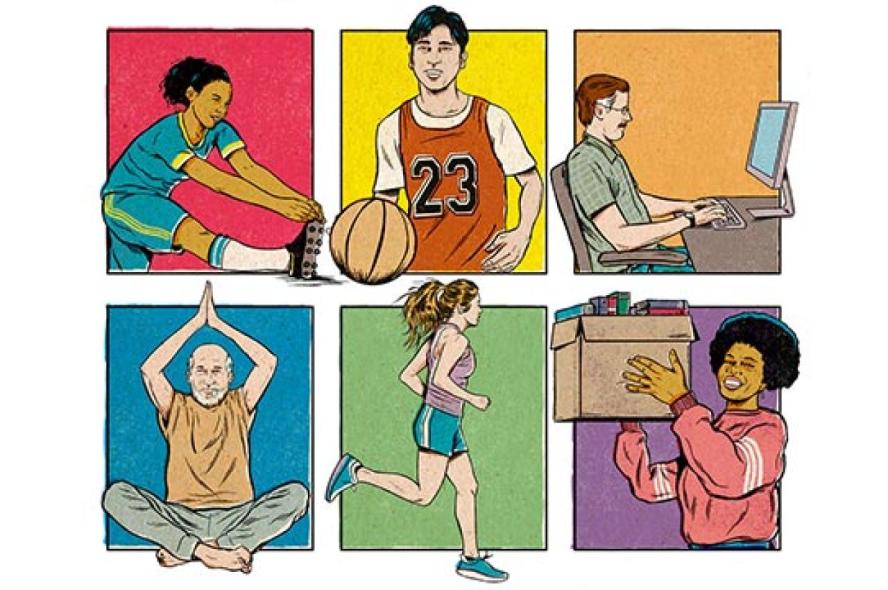-
About
- Departments & Offices
-
Academics
- Public Health
- Biomedical Sciences
- Physician Assistant
- Special Master’s (MBS)
-
Admissions & Financial Aid
- Tuition & Fees
-
Student Experience
-
- Student Resources by Program
- Academic & Student Support
- Wellness & Wellbeing
- Student Life
- Events & Traditions
-
-
Research
- Research Labs & Centers
- Tufts University-Tufts Medicine Research Enterprise
-
Local & Global Engagement
- Global Health Programs
- Community Engagement
How to Keep Your Joints Healthy and Happy
Tufts University School of Medicine alum Christopher Lee offers guidance on protecting your knees and other crucial joints

A tweaked back, a crick in your neck—aches and pains may seem like part of life. But they don’t have to be. Whether you’re a weekend warrior or working from home, here are eight tips to keep your joints healthy and happy.
Stay active.
Lockdown led to higher rates of neck and back pain because everyone was sitting at home getting stiff. Keep moving to keep fluid and nutrients flowing to your joints. At minimum, walk for 20 minutes a few times a week, and always stretch after exercising.
Ramp up slowly.
Doing too much too quickly is a common cause of injuries. If you’re just starting to activate your muscles, it’s better to go lighter weight, higher repetition. Have a good physical trainer or kinesiologist cue you so your form is spot-on.
Warm up before, stretch after.
Before you work out, warm up the muscles you’ll be using with 10 minutes of 30-second contractions, without moving. Then do a good 15 to 20 minutes of stretching afterward to prevent injury. Stretching before working out is not as effective as stretching afterward.
Strengthen your core.
A lot of people think of the core as the abdominal muscles. You certainly want strong abs, but don’t neglect your glutes, hip external rotators, and hamstrings. Doing crunches without exercising those other muscles can make your pelvis tilt forward, causing back pain.
Listen to your body.
Ignoring pain makes injuries worse. For example, a shoulder strained from repeated overhead reaching usually requires just a short course of physical therapy to resolve. But if you wait too long, you may need surgery instead. If your pain feels like a four out of 10 and lingers for more than three days, get assessed.
Be aware of your posture.
Stand with your head, back, and shoulders against the wall and palms facing forward for 30 seconds. Is that uncomfortable? If it is, your posture suffers from a forward head and hunched shoulders. Keep doing this exercise to improve it. When using your computer, make sure your monitor is at head level. And don’t use your phone in bed—it strains your neck.
Cross train.
Doing the same thing over and over again leads to repetitive overuse injuries and muscle imbalance. Mix it up to use different muscles every workout and you will see more gains in strength, and fewer injuries. For example, bike and run one week, and play basketball the next.
Do what you love.
If you get injured doing a high-impact activity that makes you happy, like CrossFit or football, get help and find a way to keep doing what you love. Life is short—let’s make it joyful.
—As told to Monica Jimenez by Christopher Lee, M14, an orthopedic surgeon in Burbank, California, and team physician for the U.S. Olympic indoor volleyball teams.